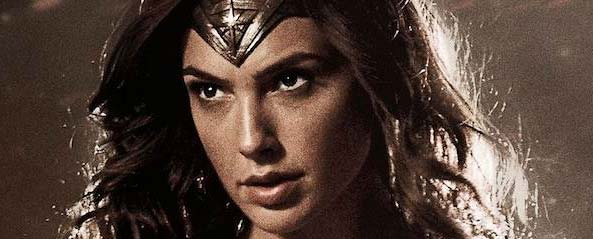
In the new Wonder Woman movie, the heroine is mystified by the ways of humankind - and she doesn't even read the Internet.
The fevered commentary about the new hit film raises the question: Can't an Amazonian super-hero wield her Lasso of Truth and bullet-deflecting bracelets while wearing an up-armored version of a figure-skating outfit without inciting yet more battles in the culture war? And this being contemporary America, the answer is, "Of course not."
Wonder Woman had a huge opening weekend, a deserved triumph for its lovely lead actress, Gal Gadot, and its director, Patty Jenkins. The movie is winsome, charmingly ridiculous summer fare with a smidgen more depth than most superhero movies.
Critics have swooned, and some of them have literally cried over the movie. This is a bit much.
The advancement of women in this country, or even just in Hollywood, didn't depend on coming up with a better female superhero vehicle than, say, Elektra (Rotten Tomato rating: 10 percent). Nor is it unusual anymore to see women beat people up on screen. This hasn't stopped some from losing their minds - a new American core competency - over Wonder Woman.
Why doesn't she have arm-pit hair? Summarizing this controversy that erupted when the trailer was released, The New York Times wrote that "the lack of body hair on the female warrior makes us wonder if feminism was swept aside in favor of achieving the ideal female aesthetic." (The Wonder Woman character has existed for about 75 years - and has never sported armpit hair.)
Did you know Gal Gadot is Israeli, served in the IDF and supported military action against Hamas? Lebanon certainly noticed. It banned the film. Actress Gina Rodriguez tweeted her disapproval of the ban, then deleted her tweet under pressure.
Then there are the clashing interpretations of the movie. It's "a masterpiece of subversive feminism," according to the Guardian.
No, it's not, according to a writer in Slate, who declares that the movie's chance to be a feminist antidote to bro-centric super-hero movies "was blown by its prevailing occupation with the titular heroine's sex appeal."
This isn't the first time Wonder Woman's looks and attire have gotten her in trouble. When the UN named her the honorary ambassador for the empowerment of women and girls, UN staff members objected. Their petition complained that the "character's current iteration is that of a large breasted, white woman of impossible proportions, scantily clad in a shimmery, thigh-baring body suit."
Guilty as charged, of course - the UN quickly reversed field and dumped her.
Wonder Woman, aka Diana Prince, is the spawn of the gods, and such creatures tend to have better-than-average looks, especially when depicted in major motion pictures. (Gadot's love interest in the film also happens to look like a movie star.)
As for Wonder Woman's outfit, most superheroes are distinguished by their inappropriate, physique-bearing costumes, and why would a self-confident Amazonian woman be any different?
Wonder Woman is certainly a feminist allegory of sorts. Diana is doing just fine on the all-female island of Themyscira with her fellow Amazonians when a dude shows up, a wayward American pilot who crash-lands off its shores. Then, everything goes wrong. She ends up leaving with him into the human world, where she confronts and spoofs mystifying practices (woman squeezing into corsets, councils of war excluding women, etc.) and World War I rages.
This is catnip for feminist writers, but surely what accounts for the film's runaway success is its traditional elements. A thread throughout is the lighthearted cross-cultural romance between the fearsomely powerful, if nonetheless feminine Diana (she delights at babies, ice cream and snow flakes) and her human love-interest.
And Diana is an admirably idealistic instrument of outraged innocence. Her Amazonian ethic means she rejects dishonesty, cowardice and cynical maneuvering. She doesn't exactly fight against the Germans - the original comic-book character, set in World War II, fought the Nazis - so much as against warfare in general. But she is righteous and brave.
By the end, Diana comes to realize that humankind is worth saving, even if it's deeply flawed. Perhaps the least of our sins, although still an annoying one, is our inability to simply enjoy a deft, entertaining summer blockbuster.
Comment by clicking here.


 Contact The Editor
Contact The Editor
 Articles By This Author
Articles By This Author